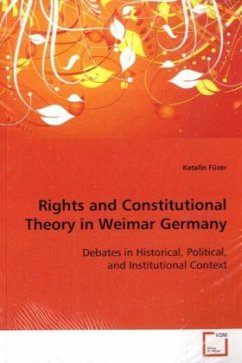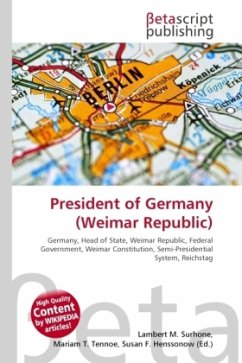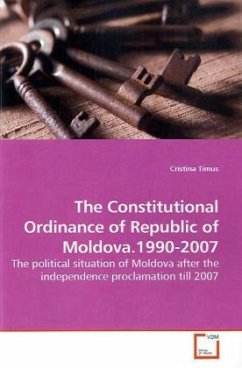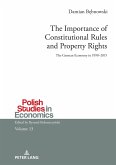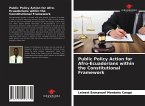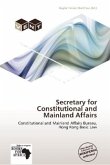The language of rights plays a central role in
contemporary constitutional and political thought
and is one of the predominant modes of political
argumentation in democracies around the world. In
spite of the fact that rights are seen as tokens of
democratic political life, their implications often
promote the cause of abstract individualism which
has detrimental consequences for viable democratic
political communities. Weimar constitutional
scholarship offers a number of theoretical solutions
for including into the language of rights
perspectives that engage the political and social
dimension of values, ideals, institutions and other
forms of social life that are not reducible to the
individual. Füzér's book offers a hitherto missing
comprehensive reconstruction of Weimar rights
theories in the context of two institutional
settings, both of which reveal models of
constitutional interpretation that grant legal
scholarship a vital role in the life of
constitutional democracies. This reconstruction of
rights theories presents today s scholars, judges
and the interested citizens of democracies with a
theoretical reservoir to draw on.
contemporary constitutional and political thought
and is one of the predominant modes of political
argumentation in democracies around the world. In
spite of the fact that rights are seen as tokens of
democratic political life, their implications often
promote the cause of abstract individualism which
has detrimental consequences for viable democratic
political communities. Weimar constitutional
scholarship offers a number of theoretical solutions
for including into the language of rights
perspectives that engage the political and social
dimension of values, ideals, institutions and other
forms of social life that are not reducible to the
individual. Füzér's book offers a hitherto missing
comprehensive reconstruction of Weimar rights
theories in the context of two institutional
settings, both of which reveal models of
constitutional interpretation that grant legal
scholarship a vital role in the life of
constitutional democracies. This reconstruction of
rights theories presents today s scholars, judges
and the interested citizens of democracies with a
theoretical reservoir to draw on.

